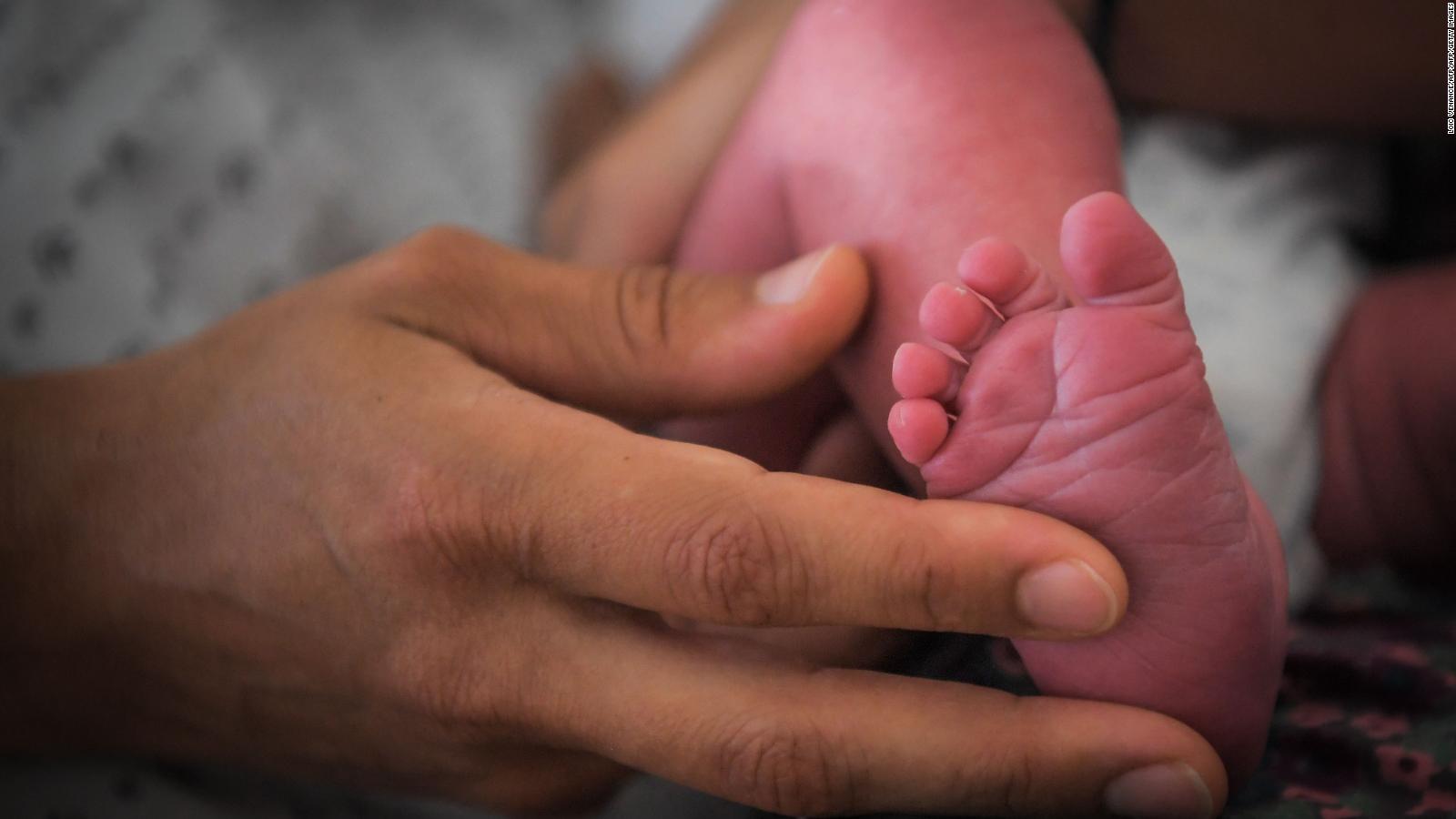"I lost my wife and son": The tragic reality of postpartum depression 6:18
(CNN Spanish) --
Postpartum depression (PPD) is a mood disorder very similar to major depressive disorder that affects up to 56% of Latina women living in Mexico and the United States during the first 4 months after the birth of your baby, according to the Pan American Health Organization (PAHO).
But how can postpartum depression be identified and properly treated?
Daniela Chinchilla Ochoa, Dr. in Psychology specialist in reproductive and women's mental health, explained to CNN that postpartum depression is very similar to major depressive disorder.
However, it has very specific characteristics of time that should not be confused with the "
baby blues
" or postpartum blues, a syndrome considered normal since it is secondary to the hormonal changes characteristic of postpartum.
"The diagnostic criteria for postpartum depression is that it must last (at least) two weeks consecutively during the following four weeks postpartum after the birth of the baby and must generate significant alterations in the mother's functioning," Chinchilla Ochoa indicated.
Postpartum depression cost the lives of a woman and her son
Among the criteria that postpartum depression shares with major depressive disorder are low mood for most of the day, difficulty sleeping, changes in sleep and appetite patterns, difficulty concentrating, and ideas of hopelessness.
And according to the specialist in reproductive and women's mental health, a particular characteristic of postpartum depression is personal neglect on the part of the mother.
Personal carelessness, he explains, can be seen in self-care habits, such as eating and personal hygiene, or the abandonment of some medical treatment.
"AND
It's being negligent with your health and with your personal care," he said. Another particular characteristic is negative feelings towards other people, including the baby, as well as a lack of concern for the well-being of the baby.
advertising
"A very particular and frequent characteristic is self-medication with medicines or alcohol. This is hardly talked about, but it is very frequent," explained Chinchilla Ochoa.
According to the World Health Organization (WHO), depression and anxiety during this period are the main causes of disability in women around the world.
And while there are some risk factors, like a history of mental health problems, postpartum depression can affect anyone.
Detection, diagnosis and treatment
According to PAHO, most women with postpartum depression do not seek or receive specific treatment.
"It's not that they don't have postpartum depression. It's that they don't talk because socioculturally it's frowned upon to talk, that is, openly say that you feel bad," said Chinchilla Ochoa.
"And this happens because we have like a whole boom of idealization of motherhood and the super mom," she added.
The specialist in reproductive and women's mental health indicated that the system itself conditions feelings of guilt because "our world does not work with a gender perspective, that is, having or sustaining a society that includes the gender perspective in its dynamics, that is, economic, labor, professional, academic, it would be to take into account the physical needs of motherhood that women have".
PAHO points out that the main risk factors for postpartum depression are:
A partner who does not offer emotional support, does not have company or is a single mother
History of early losses
Having been neglected, physically, emotionally, or sexually abused as a child
social isolation
Socioeconomic stressors
Care of other minors in the home
Poor relationship with parents or prolonged separations
Previous depressive episodes
When talking about detection, Chinchilla Ochoa indicated that the degree of deterioration is the indicator that can tell us if a mother is experiencing "baby blues" —which occurs in 50 to 60% of women— or postpartum depression.
That is, if it is something that goes from being emotional instability, conditioned by hormonal changes, to a feeling of discomfort, sadness or anxiety that makes the mother neglect herself and the baby.
The "baby blues" is a mild change in mood that begins in the first week postpartum, between three and seven days, and according to the specialist, the symptoms last from 2 to 3 weeks maximum.
After the birth of a baby, the body enters into a physical hormonal imbalance and it takes approximately two to three weeks to restore itself.
A process known as "quarantine".
"
Why is it important to have a well-cared-for
baby blues
?
Because if this is not the case, it can turn into postpartum depression and postpartum depression that is not well detected, diagnosed and treated in time can end in postpartum psychosis," Chinchilla Ochoa said.
Postpartum psychosis not only manifests itself with psychotic and delusional symptoms, but in a majority of cases, mothers tend to threaten their life and that of their babies.
"
So, yes, postpartum depression that is not treated and diagnosed early can end the life of the baby and the mother," he added.
Depression and suicide: where to seek help in Latin American countries and Spain?
The specialist in reproductive and women's mental health said that when symptoms are detected, people should go to the doctor with whom they have the most contact and trust, which is usually the pediatrician or the gynecologist, who can refer to the patient with a specialist.
And as with major depression, the treatment of postpartum depression can include therapy, emotional support programs and/or the use of medications, which, according to Chinchilla Ochoa, are usually compatible with breastfeeding.
"It has been seen that breastfeeding is a psychoprotective factor for postpartum depression, so treatment is always focused on promoting breastfeeding," she explained.
Hand in hand with medical intervention and psychological treatment, the specialist indicates that building a support network, both practical and emotional, is key to postpartum recovery.
Chinchilla Ochoa explains that the support network can involve the partner, friends, family as well as domestic service personnel.
However, the family medical team is not excluded, be it the pediatrician, gynecologist, counselor or psychotherapist.
postpartum depression

